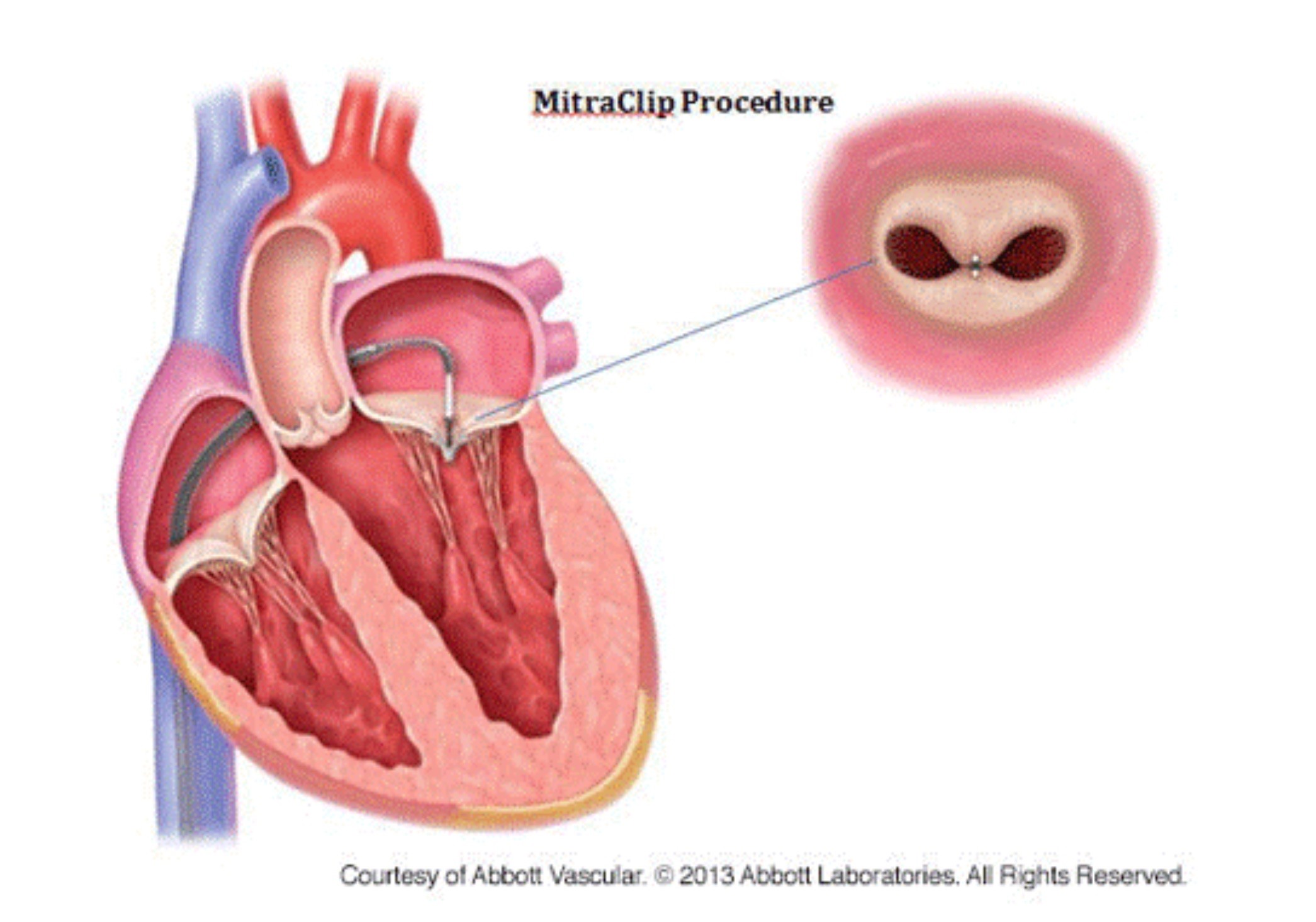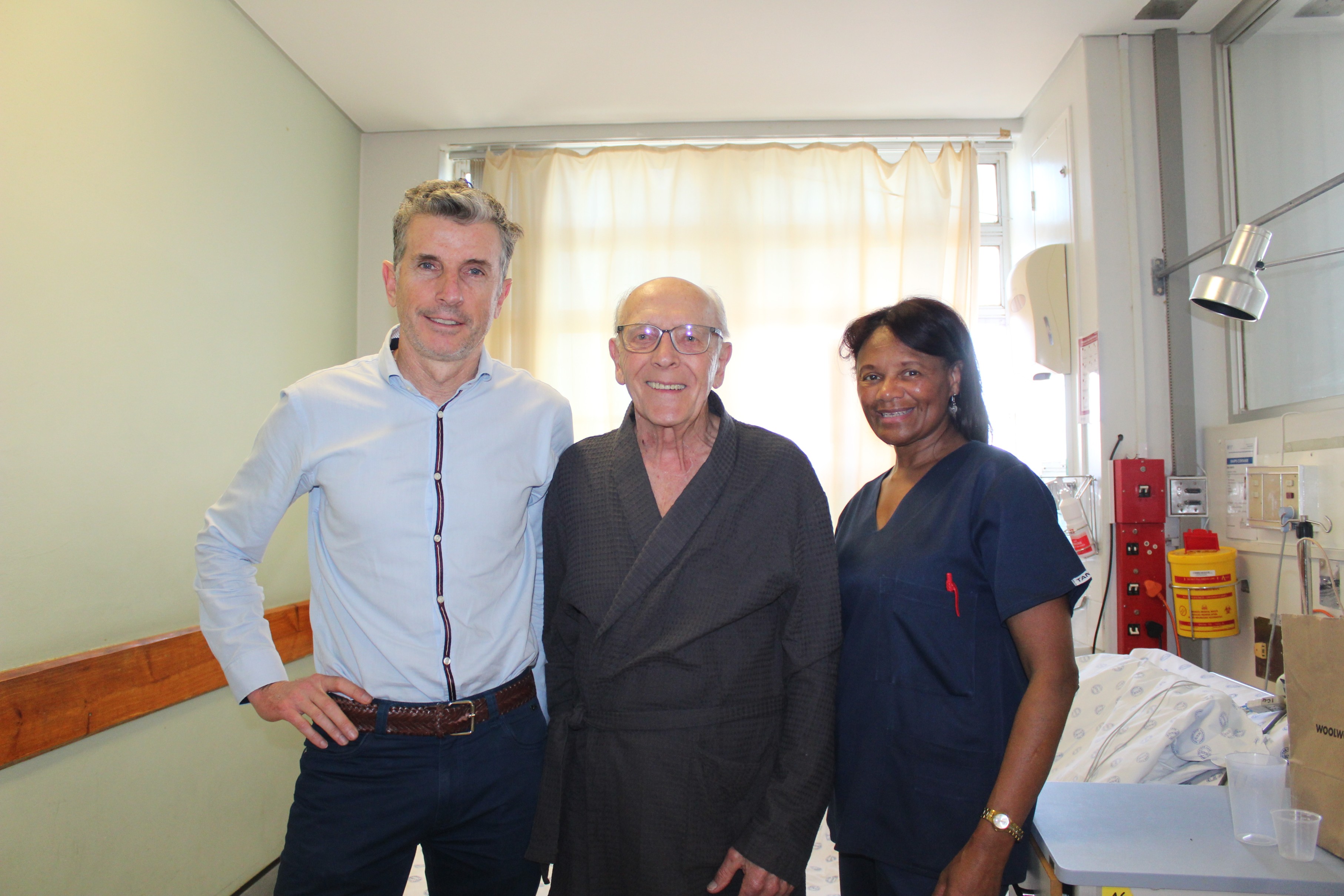
News
Clinicians at Tygerberg and Groote Schuur Hospital perform MitraClip procedures
Clinicians at Tygerberg Hospital and Groote Schuur Hospital perform MitraClip procedures – a first in South Africa
Last week, clinicians at Tygerberg Hospital and Groote Schuur Hospital performed the country’s first MitraClip implantation procedures on five patients to improve their quality of life. This procedure is a minimally invasive treatment option for patients with mitral regurgitation (MR) who may be unsuitable for open-heart surgery. To date, nearly 150 000 patients worldwide have undergone MitraClip implantation, which has become a viable treatment option for patients who are deemed to be high risk surgically.
Dr Hellmuth Weich, a Senior Specialist at Tygerberg Hospital, was part of the team that performed the first procedures as part of a joint project by Tygerberg Hospital and Groote Schuur Hospital. “Last week, history was made by a team of cardiologists and cardiac surgeons from the two academic hospitals in the Western Cape when they performed the first transcatheter mitral valve edge-to-edge repair procedures in sub-Saharan Africa. Because of the cost and complexity of the procedure, this treatment is reserved for patients who are deemed inoperable through conventional surgery with very specific abnormalities to the valve. These MitraClip implants are the culmination of years of planning, preparation, and training. What makes the procedures more unique is the fact that most of the patients have full medical insurance, but a decision was made that it should be performed in a controlled environment of academic hospitals. Since it is likely to be performed in limited numbers, the teams from Tygerberg and Groote Schuur Hospitals and decided to come together and form a single team to ensure the maximum exposure for all team members.”
Max Köster (87) from Durbanville was the first patient to undergo the procedure at Tygerberg Hospital on 27 September 2023. “I feel very good. I was taken to theatre at 7:00. I can only speak highly of the care that I received here. The staff were wonderful with my admission as well as in the ward. The theatre staff were also very kind. I was completely surprised when Dr Weich told me that I could go home a day after my operation. I am going to take it easy because I should take good care of myself.”
Phillip Isaacs (71) from Athlone was the first patient to undergo the procedure at Groote Schuur Hospital on 28 September 2023. He presented with heart failure symptoms, mainly shortness of breath due to underlying mitral valve regurgitation from mitral valve prolapse. “This condition slowed me down because I was out of breath all the time and my feet became swollen. After the operation I felt normal again. I feel different because now I am no longer experiencing shortness of breath. Since I am still in the healing process, I am taking it easy until I feel completely better. The hospital staff were so professional. I could not feel anything during the process, and I was amazed when they said the operation was done.”
The procedures were not down to one individual, but the entire hospital teams made this happen. “I feel very lucky to have been part of the first procedures and am very thankful that we can offer patients this sophisticated valve disease therapy. I look forward to the next round of implants. It is important to note that this is teamwork, and I was honoured to be part of team between the two hospitals,” said Dr Jens Hitzeroth, Senior Specialist at Groote Schuur Hospital.
About mitral regurgitation (MR) and MitraClip procedure
MR is one of the most common valvular heart diseases and its prevalence increases rapidly with age. It occurs when the mitral valve in the heart does not close completely. This means that blood cannot move through the heart and out to the rest of the body as efficiently as it should. Previously, mitral valve surgery was the only option for treating MR, but this involves opening an individual’s chest and temporarily stopping the heart which is considered too risky for some patients.
During a MitraClip procedure the mitral valve is reached using a catheter. This is a thin, flexible tube that is guided through a vein in the leg up to the heart. The MitraClip device, which is a small clip, is fed through the catheter and attached to the valve to help it close, restoring normal blood flow through the heart as a result. The potential benefits of the procedure include a much shorter recovery time, often just one or two days in hospital after the device is inserted. The procedure also enables higher-risk patients with severe MR or who are older to receive treatment and experience a significant improvement in symptoms and quality of life.





